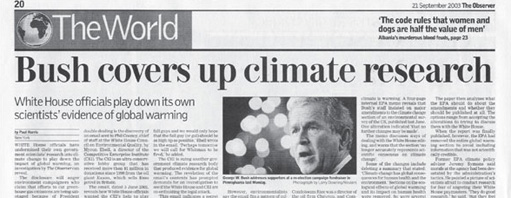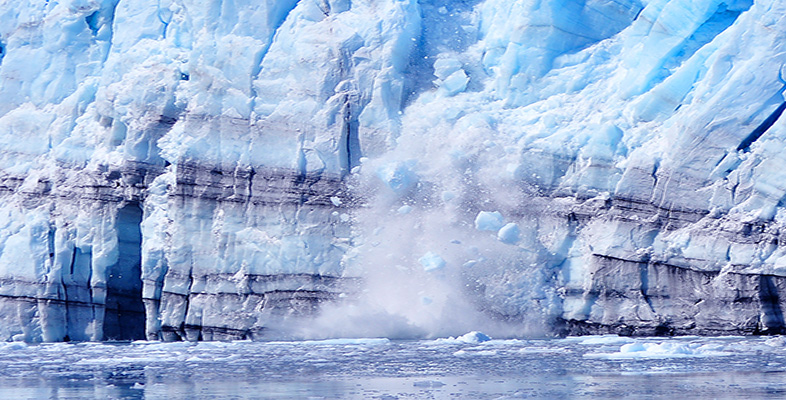2.3 Contested science: a case study
For complex issues such as global climate change, there are many opportunities for scientists to take issue with the findings of their colleagues. They can disagree about the procedures for gathering data, the completeness or coverage of the data, how the data are analysed and interpreted, and then finally the conclusions. The assumptions that shape a particular piece of research and inform the kind of questions that will be asked can be no less contentious than the quality of the data gathered.
Such contention is not unique to climate science, of course. Fuelled in part by very human concerns such as a desire to protect one's reputation, competition for funding, etc., vigorous debate is the lifeblood of science; it helps to drive further investigation and innovation. In scientific areas where society has pressing concerns, however, influences beyond the normal cut and thrust of scientific debate come into play. Scientists are typically aware of the potential policy implications of their research, and may shape their work accordingly. Often, such research is stimulated or funded by organisations with an interest in the outcome of the policy debate. In turn, interest groups and policy makers tend to adopt a 'pick n'mix' approach to the available scientific evidence, promoting research that reinforces their existing arguments and beliefs, and neglecting or criticising more uncomfortable findings. Equally, the influence of individual scientists sometimes owes more to their access to decision makers or the media than to the reliability of their knowledge.
In short, the science associated with policy-sensitive areas like climate change is almost bound to be hotly contested, with disputes within the scientific community being extensively reported by the media. In the early years of this century, the 'hockey stick' reconstruction (Figure 24b, first published by Professor Michael Mann and colleagues in Nature in 1998) became the target for a sustained (and at times, vitriolic) attack that had a high public profile in the US. This is not altogether surprising. It is a potent image - and has become, for some, an icon of what we are doing to the climate. Equally, we should bear in mind the political circumstances of the day. Shortly after he took office in 2001, President George W. Bush withdrew the US from the Kyoto Protocol on the grounds that it would harm the US economy. Given the link between fossil fuels, CO2emissions and economic activity, this is a legitimate concern; it may well be shared (privately) by other world leaders. Nevertheless, rejection of this landmark agreement to curb CO2 emissions from industrialised countries set the tone for the Bush Administration. It was widely seen as hostile to any mandatory cutbacks in CO2 emissions, and open to the influence of sceptical scientific opinion on global warming - either directly (Figure 27) or through the activities of various business-backed lobby groups.

